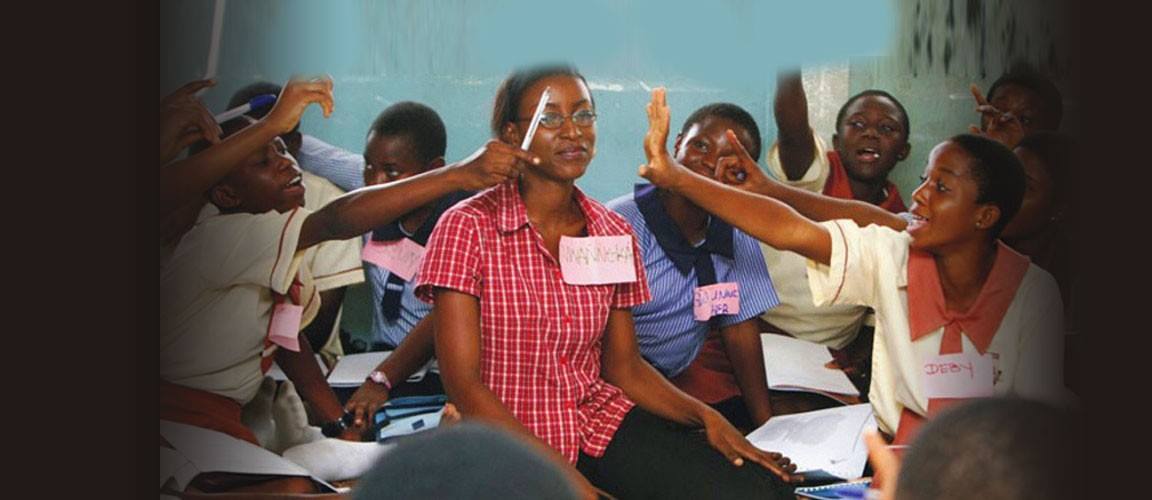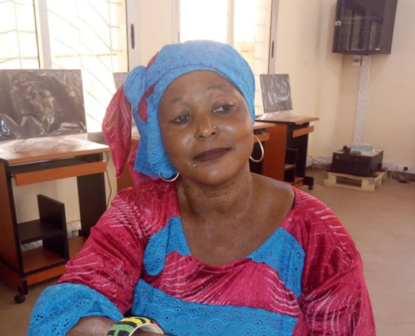Project
Ending violence, marginalisation and discrimination towards PWD’s and vulnerable women
-
Amount Funded
129,362 EUROProject Duration
14 Jul 2017 - 30 Jun 2019 -
-
Lead organisation
-
KIND stands for the Kudirat Initiative for Democracy, a not-for-profit organisation based in Lagos, Nigeria. KIND works primarily in Nigeria in the areas of leadership development for young women and on collaborative projects aimed at removing barriers to women’s public participation and ending violence against women. KIND’s vision is an Africa where women are full participants in the continent’s social, economic and political development. In the last ten years, KIND has carried out many different activities under its three areas of intervention. The areas of intervention are grouped into leadership development, Creating Opportunities and Working Collaboratively with other organisations, agencies and individuals. KIND was founded by Hafsat Abiola-Costello in honour of Alhaja Kudirat Abiola, a leading icon and democracy activist who was killed on June 4th, 1996 for her fight for the restoration of democracy in Nigeria.
-
Organisation
KIND stands for the Kudirat Initiative for Democracy, a not-for-profit organisation based in Lagos, Nigeria. KIND works primarily in Nigeria in the areas of leadership development for young women and on collaborative projects aimed at removing barriers to women’s public participation and ending violence against women. KIND’s vision is an Africa where women are full participants in the continent’s social, economic and political development. In the last ten years, KIND has carried out many different activities under its three areas of intervention. The areas of intervention are grouped into leadership development, Creating Opportunities and Working Collaboratively with other organisations, agencies and individuals. KIND was founded by Hafsat Abiola-Costello in honour of Alhaja Kudirat Abiola, a leading icon and democracy activist who was killed on June 4th, 1996 for her fight for the restoration of democracy in Nigeria.
-
Project
This project of KIND Nigeria promotes actions to tackle the policy deprivations as well as social and institutional barriers faced by People with Disabilities (PWDs). Secondly, it mitigates the social exclusions, abuses, exploitation and violence against women in Nigeria. Specifically promoting rights-based approaches to:
- tackle disability issues in Nigeria
- influence policy makers to extend social protection to PWDs
- strengthen the capacity of stakeholders (NGOs) to engage in lobby and advocacy for increased social inclusion and political participation of PWDs and women who are often marginalised and discriminated against.
The project runs in two out of the six geopolitical zones of the country namely; North central (FCT) and Southwest (Lagos State) for a period of two years. Methodologically, the project employs the social model of disability to strengthen the capacities of Disables People Organisations (DPOs) and to support NGOs enabling them to discharge their lobby and advocacy functions. This ensures more social inclusion and improved access to disability services by the PWDs. In the same vein the project emphasises on activities that will amplify the voice of marginalised women and supports NGOs to tackle the issues of restricted access to productive resources as well as sexual abuses, exploitation and violence. The project targets people living with disability and women facing exploitation, sexual abuse and violence and restricted access to finance. It supports DPOs, representatives of PWDs, NGOs working to promote women political participation, women political aspirants and women farmers’ groups facing restricted access to finance. In achieving its objectives, it partners with stakeholders in public and private sectors including government officials, community and opinion leaders, formal financial institutions and the mass media.
-
-
This project of KIND Nigeria promotes actions to tackle the policy deprivations as well as social and institutional barriers faced by People with Disabilities (PWDs). Secondly, it mitigates the social exclusions, abuses, exploitation and violence against women in Nigeria. Specifically promoting rights-based approaches to:
- tackle disability issues in Nigeria
- influence policy makers to extend social protection to PWDs
- strengthen the capacity of stakeholders (NGOs) to engage in lobby and advocacy for increased social inclusion and political participation of PWDs and women who are often marginalised and discriminated against.
The project runs in two out of the six geopolitical zones of the country namely; North central (FCT) and Southwest (Lagos State) for a period of two years. Methodologically, the project employs the social model of disability to strengthen the capacities of Disables People Organisations (DPOs) and to support NGOs enabling them to discharge their lobby and advocacy functions. This ensures more social inclusion and improved access to disability services by the PWDs. In the same vein the project emphasises on activities that will amplify the voice of marginalised women and supports NGOs to tackle the issues of restricted access to productive resources as well as sexual abuses, exploitation and violence. The project targets people living with disability and women facing exploitation, sexual abuse and violence and restricted access to finance. It supports DPOs, representatives of PWDs, NGOs working to promote women political participation, women political aspirants and women farmers’ groups facing restricted access to finance. In achieving its objectives, it partners with stakeholders in public and private sectors including government officials, community and opinion leaders, formal financial institutions and the mass media.
-
Ending Violence, Marginalisation and Discrimination towards Persons with Disabilities and Vulnerable Women
Ada, a girl who is intellectually challenged, is on the precipice of womanhood, yet a little more than a baby in her mind. She is beautiful, light-skinned and always ready to smile whenever she catches my eyes… as if my smiling back was an affirmation that she exists, or a confirmation that she is visible. With a beautiful but crooked smile that can only come from one so innocent, she ponders why the boy she wants to play with in church refuses to even say hello. One day, as she stands in the corner, looking at the boy she likes as he plays with other children, she started crying. Her mother found her so, and asked her what was wrong. “Can you see me, mama? Because that boy never sees me. He never says hello when I greet, or return my smile”. The mother gave her a warm, long hug. “Adanna, my first fruit, if he does not see you that is his problem, not yours. You are perfect, and everyone can see you. Come, take your favourite snack”, the mother’s heart is heavy as she tried to distract Ada.
The Kudirat Initiative for Democracy (KIND) is a not-for-profit organisation based in Lagos, Nigeria. It works primarily in Nigeria in the areas of leadership development for young women and on collaborative projects aimed at removing barriers to women’s public participation and ending violence against women. KIND’s vision is an Africa where women are full participants in the continent’s social, economic and political development. In the last ten years, it has carried out many different activities under its three areas of intervention, Leadership Development, Creating Opportunities and Working Collaboratively with other organisations, agencies and individuals. KIND was founded in honour of Alhaja Kudirat Abiola, a leading icon and democracy activist who was killed on June 4th, 1996 for her fight for the restoration of democracy in Nigeria.
KIND implemented the project Ending Violence, Marginalisation and Discrimination towards PWD’s and Vulnerable Women that aimed to promote actions to tackle the policy deprivations, social and institutional barriers faced by People with Disabilities (PWDs) as well as mitigate the social exclusions, abuses, exploitation and violence against women in Nigeria. The project was implemented in two out of the six geopolitical zones of the country namely; North central (FCT) and Southwest (Lagos State) for a period of two years. The project employed the social model of disability to strengthen the capacities of Disabled People Organisations (DPOs) and to support NGOs enabling them to discharge their lobby and advocacy functions. This ensured more social inclusion and improved access to disability services by the PWDs. The project laid emphasis on activities that amplified the voice of marginalised women and supported NGOs to tackle the issues of restricted access to productive resources as well as sexual abuses, exploitation and violence.
“As a teacher in an inclusive unit in Lagos state, I am overwhelmed by the sheer volume of work. Some of my students come to school without food; some fall ill in class and need help. I end up being the doctor, the therapist, the friend and even the guardian for many of these pupils. You might think my class is made up of just twenty pupils, but how do I take care of all the different needs of these children without help and adequate support? How am I even sure that they are learning anything at all? When KIND came calling, I saw the opportunity to anonymously talk about my challenges, and was surprised that many other teachers felt the same pressure. Some teachers were later employed, while the Parents-Teachers Association in some schools offered to pay for a cleaner for the children I teach. That is a brief reprieve.” – The thoughts of teacher in an inclusive unit
Parents and teachers were trained on how to handle the wards in their care. Through meetings and platforms, different personnel in the education sector got first-hand experiences and narratives of the challenges of the pupils.
Overall, it was clear that there is a wide disconnect between the makers of policies, and the people who live with these policies. The project therefore had to find a way to bring the different stakeholders to the table, such that the prevailing realities in the inclusive units in Lagos State became apparent to all. This was done through baseline surveys, interviews with parents, teachers and authorities in the education sector, consultative stakeholder meetings, radio programmes, documentary production and finally, the creation of an Inclusive Education Manual for Lagos State, submitted to Lagos State Basic Education Board, Ministry of Education, Local Government Education Authorities, Parents, political representatives, teachers and other stakeholders.
-
News




